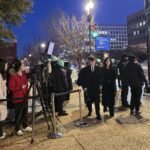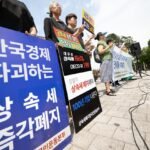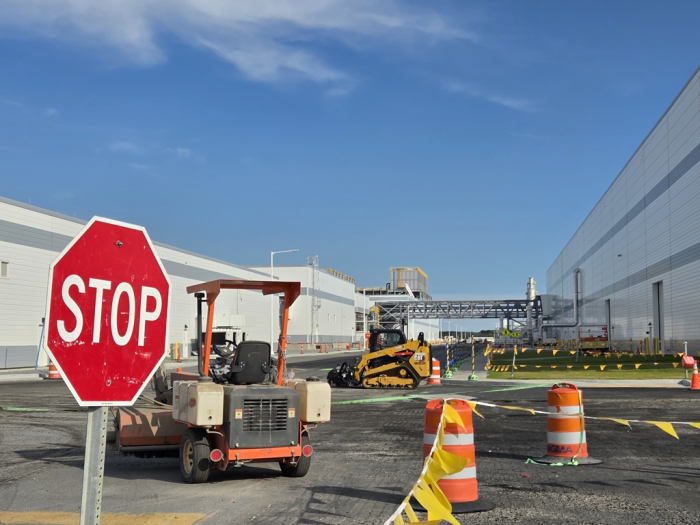
ELLABELL, Georgia – The South Korean government has secured the release of about 300 nationals detained following a raid by US authorities on an electric vehicle battery joint venture between Hyundai Motor Co. and LG Energy Solution Ltd. in Georgia.
Kang Hoon-sik, Seoul’s presidential chief of staff, told senior ruling party officials on Monday that negotiations with the US government on their release have concluded.
“Our government, business associations and relevant companies worked as one to secure their release,” Kang said.
The official said the Korean workers will return home on a chartered plane under a “voluntary departure” process, avoiding deportation records and future entry bans.
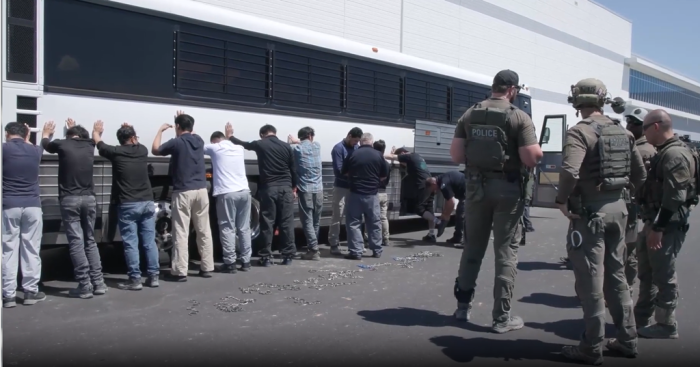
Korea’s Foreign Minister Cho Hyun is scheduled to travel to Washington later on Monday to finalize administrative procedures with US Secretary of State Marco Rubio, clearing the way for repatriation flights as early as Wednesday, people familiar with the matter said.
Nearly 500 employees, including 300 Koreans – mostly LG Energy staff, subcontractors and engineers – were taken into custody last Thursday by agents from the US Immigration and Customs Enforcement (ICE), the Homeland Security Investigations (HSI), the Drug Enforcement Administration (DEA) and Georgia state troopers.
The detained employees are alleged to have worked on the site without proper work permits, having entered the US under the Electronic System for Travel Authorization (ESTA) or short-term B1 business visas.
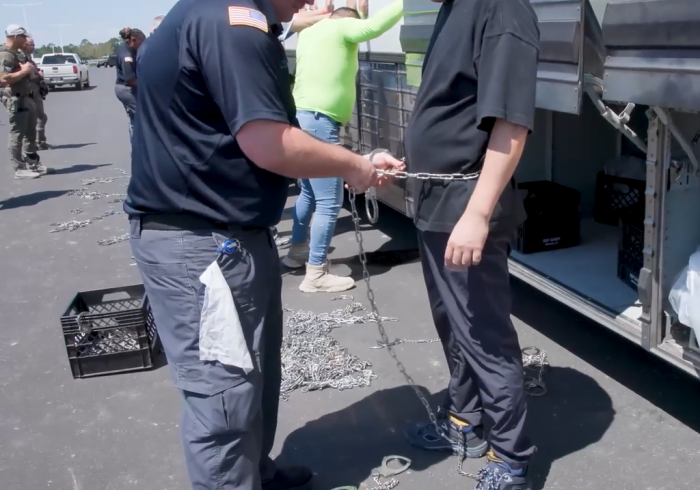
WORK ACROSS AT LEAST 22 KOREAN PROJECTS IN THE US HALTED
The $4.3 billion joint venture battery facility, among the largest projects in Georgia and is expected to create 8,500 jobs, was scheduled for completion later this year to supply battery cells to Hyundai’s nearby EV factory, Hyundai Motor Group Metaplant America LLC (HMGMA).
Construction work on the site was suspended following the raid.
The incident has thrown Korea’s flagship investment projects in the US into disarray.
Sources said at least 22 other factory sites involving Korean business groups, in autos, shipbuilding, steel and electrical equipment, have been nearly halted.
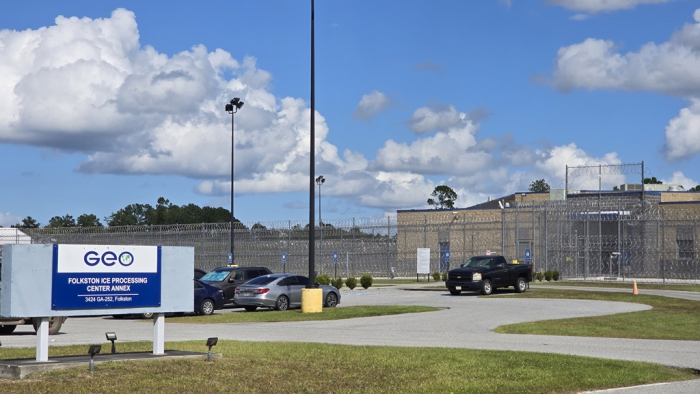
Korean conglomerates, including semiconductor giants Samsung Electronics Co. and SK Hynix Inc., are heavily investing in US chip facilities, while Samsung SDI Co. and SK On Co. are building battery plants with their partners GM and Ford, respectively. Several of these sites rely on rotating teams of Korean engineers.
There are growing concerns in the business community that major Korean investment projects in the US could be affected, including the MASGA, or Make American Shipbuilding Great Again, program, a joint US-Korea shipbuilding project; Hyundai Steel Co.’s construction of a US steel mill; and the expansion of local factories by power equipment manufacturers HD Hyundai Electric Co., Hyosung Heavy Industries Co. and LS Electric Co.
These projects require the deployment of hundreds of employees from headquarters and partner companies.
‘TREATED LIKE CRIMINALS’
Korean companies with US interests have frozen travel plans and recalled staff already in the US over fears of further raids.
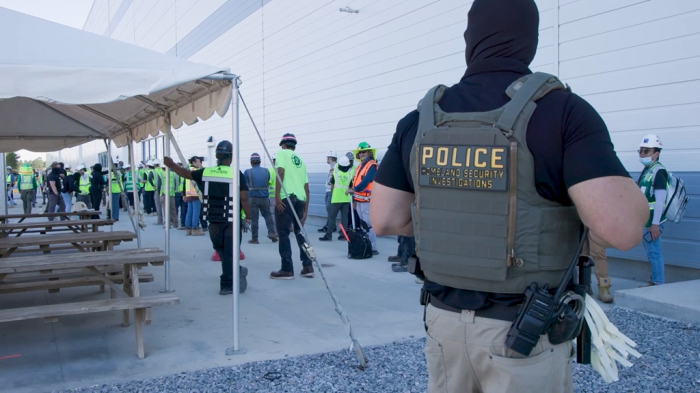
“Korean workers are treated like criminals for building factories that Washington itself lobbied for,” said a company executive in Seoul. “If this continues, investment in the US could be reconsidered.”
The incident underscores a structural weakness in Korea Inc.’s overseas expansion model.
With H-1B and L-1 work visas, which are harder to obtain, in short supply, Korean firms have routinely rotated engineers through 90-day ESTA entries or short-term B-1 visas to meet tight construction schedules.
Industry officials in Seoul warn that unless visa arrangements for skilled Korean staff are settled through bilateral talks, investment timetables worth more than 140 trillion won ($101 billion) across multiple US states will face serious delays and cost overruns.
The ICE raid risks inflaming tensions between Washington and Seoul, a key ally and major investor in the US.
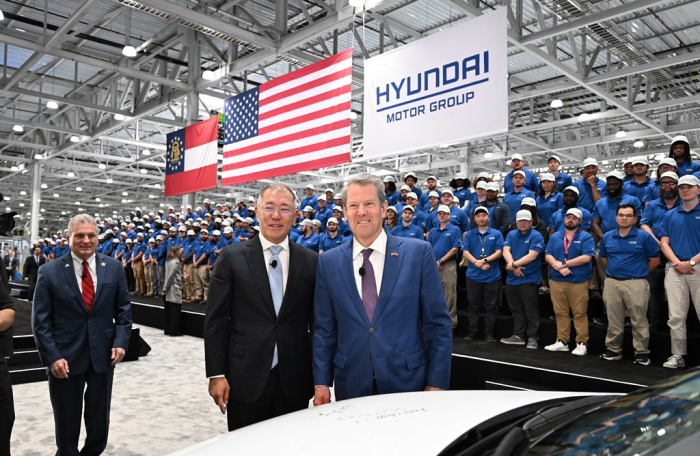
The two countries have been at odds over the details of a trade deal that includes $350 billion in investments. At a bilateral summit last month, Korea committed an extra $150 billion in US investments, including $26 billion from Hyundai Motor.
TRUMP’S PLEDGE TO DEPORT 1 MILLION UNDOCUMENTED MIGRANTS ANNUALLY
Political pundits said the ICE adopted aggressive enforcement quotas under President Donald Trump’s pledge to deport 1 million undocumented migrants annually.
According to the Department of Homeland Security (DHS), the US government deported nearly 200,000 people during the first seven months of the Trump administration.
That’s the highest number in a decade, but still far short of the 1 million per year that Trump campaigned on, CNN reported recently.
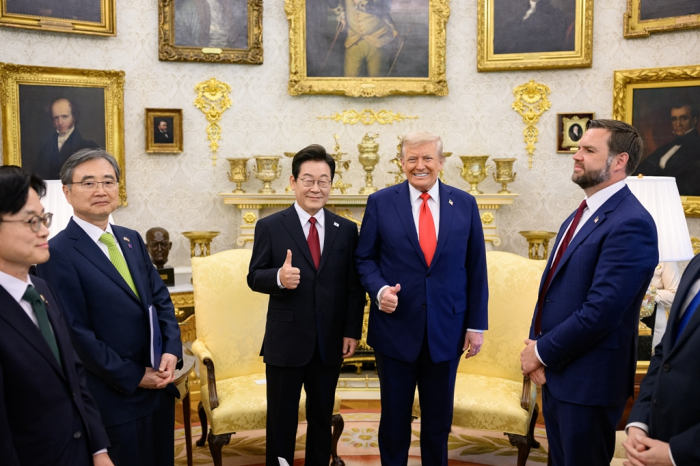
The New York Times said, “These collateral arrests, which were not the original goal, are on the rise.”
Analysts said the Georgia raid also reflects partisan fault lines in Washington.
The Hyundai-LG joint venture project was announced during former President Joe Biden’s 2022 visit to Seoul and championed by the former president as a pillar of his clean-energy agenda.
Trump, who has sought to roll back EV subsidies, has been skeptical of such plants, analysts said.
“There is an unavoidable political dimension here,” said a Korean industry analyst. “What was once celebrated as a symbol of the alliance has now become collateral damage.”
By Sang-eun Lucia Lee and In-Yeop Kim
selee@hankyung.com
In-Soo Nam edited this article.

